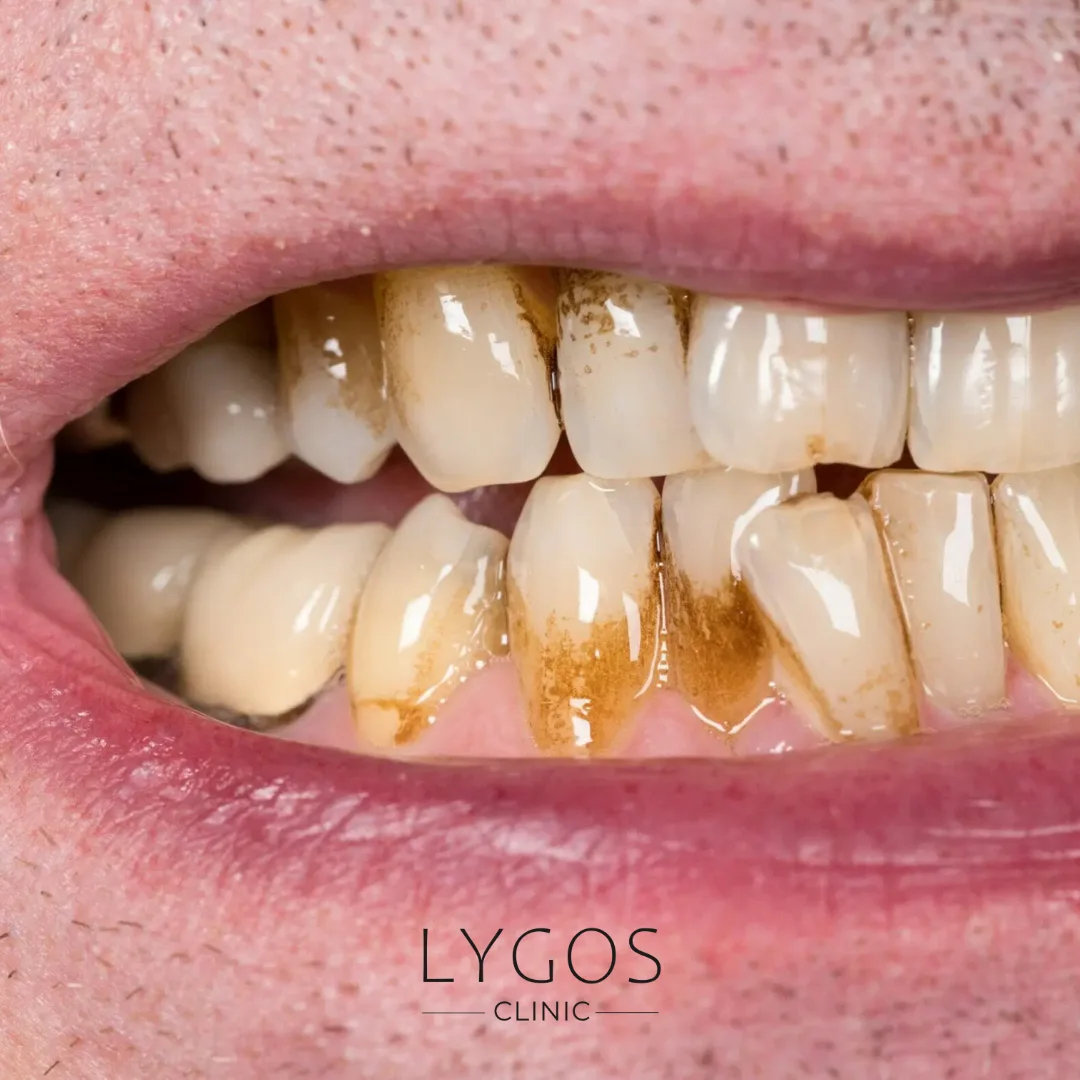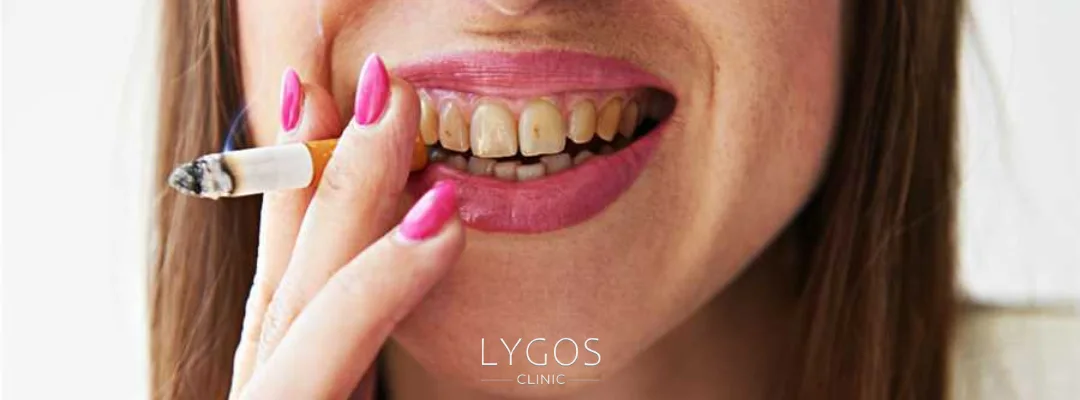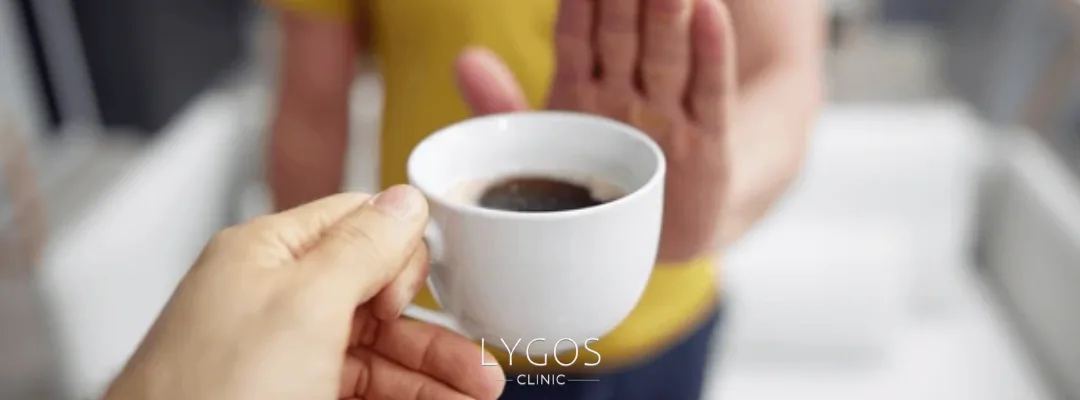Brown Stains on Teeth | Causes, Symptoms, and Treatment Methods

Chose Your Topic
Brown Stains on Teeth
Dental health is extremely important both for aesthetic appearance and overall quality of life. Bright and white teeth are the most important part of a healthy smile. However, many people experience the problem of brown stains on their teeth over time. This situation not only causes aesthetic concerns but may also indicate deterioration of oral health. In this article, you will find all the details you wonder about brown stains on teeth.

Why Do Brown Stains Appear on Teeth?
Brown stains on teeth can result from different causes. The main factors include lifestyle, eating habits, and oral hygiene.
- Tobacco Use: Tobacco products such as cigarettes and hookah gradually leave permanent brown stains on the surface of the teeth.
- Coffee, Tea, and Cola Consumption: Due to their strong pigments, they adhere to the enamel and cause a brownish appearance.
- Poor Oral Hygiene: When brushing and flossing are neglected, plaque accumulates, leading to discoloration.
- Medications and Excess Fluoride: Certain antibiotics (like tetracycline), if used during childhood, may cause permanent stains.
- Aging: Over time, enamel wears down, making the underlying dentin’s color more visible.
In short, brown stains on teeth may stem from both external factors and natural body processes.
Symptoms of Brown Stains on Teeth
Brown stains are usually noticed as a visual problem, but other symptoms may also accompany them:
- Color variations on tooth surfaces, from yellow to dark brown
- An aesthetically disturbing appearance, especially on the front teeth
- Bad breath or a rough feeling on the tooth surface
- Gradually worsening discoloration and uneven tooth color
If ignored, brown stains may develop beyond just an aesthetic issue and become a sign of dental health problems.
Are Brown Stains Risky for Oral Health?
Many people think brown stains are only cosmetic, but that’s not always true.
- May Indicate Cavities: Brown spots on the enamel can be the first stage of tooth decay.
- Plaque and Tartar Build-up: If not cleaned, plaque hardens into tartar, leading to gum disease.
- Impact on Oral Health: Brown stains promote bacterial accumulation, which may cause gum inflammation and bad breath.
- Loss of Confidence: Teeth that look unappealing can negatively affect social interactions.
Therefore, brown stains are not just an appearance issue—they can also pose risks to dental health.

Home Remedies for Whitening and Removing Stains
When brown stains appear, people often try natural solutions at home first. However, these methods may not provide permanent results.
- Regular Brushing: Brushing at least twice daily with fluoride toothpaste helps prevent progression of stains.
- Cleaning with Baking Soda: Using baking soda once a week can reduce surface stains.
- Oil Pulling with Coconut Oil: Thanks to its antibacterial properties, it can reduce plaque formation.
- Flossing: Removes food particles stuck between teeth, preventing brown discoloration.
- Sugar-Free Gum: Stimulates saliva flow, helping natural cleaning.
Although these home methods can be helpful, professional treatments are usually necessary for long-lasting solutions.
Professional Treatments by Dentists
When home remedies are not enough, visiting a dentist is the best option. With professional treatments, brown stains can be completely removed.
- Scaling (Tartar Removal): Eliminates plaque and tartar build-up.
- Professional Teeth Whitening: Whitening agents applied under dentist supervision can lighten teeth by several shades.
- Microabrasion Method: Special abrasives remove superficial stains.
- Composite Fillings or Veneers: For advanced stains, aesthetic fillings or porcelain veneers may be applied.
These methods not only provide satisfying cosmetic results but also help maintain oral health.

Ways to Prevent Brown Stains
Prevention is just as important as treatment. Taking small precautions before stains form helps maintain healthier, whiter teeth.
- Avoid smoking and tobacco
- Brush and floss regularly
- Limit consumption of coffee, tea, and cola
- Visit the dentist regularly
- Eat a balanced diet and drink plenty of water
These habits significantly reduce the likelihood of brown stains forming over time.
Brown stains on teeth are not only an aesthetic issue but also a dental health concern. When detected early, they can be treated with simple methods, but professional intervention is required if they progress. With regular oral hygiene, healthy lifestyle habits, and dental checkups, this problem can be prevented.
Remember, healthy and white teeth not only boost your self-confidence but also reflect your overall health.
Brown Stains on Teeth Frequently Asked Questions (FAQ)
They can be reduced at home with regular brushing or natural methods like baking soda. However, permanent and deep stains usually require professional cleaning or whitening by a dentist.
Not every brown stain is a cavity. Surface stains usually come from external factors. But in some cases, they can indicate early tooth decay. A dental check-up is recommended.
Yes. Because they contain strong pigments, regular consumption of coffee, tea, and cola can lead to brown stains.
Home remedies can reduce surface stains but usually cannot eliminate them entirely. For a permanent solution, professional dental treatment is necessary.
Although they may seem like just a cosmetic issue, brown stains can also be signs of plaque build-up or early cavities. Therefore, they should not be ignored, and regular dental check-ups are advised.



